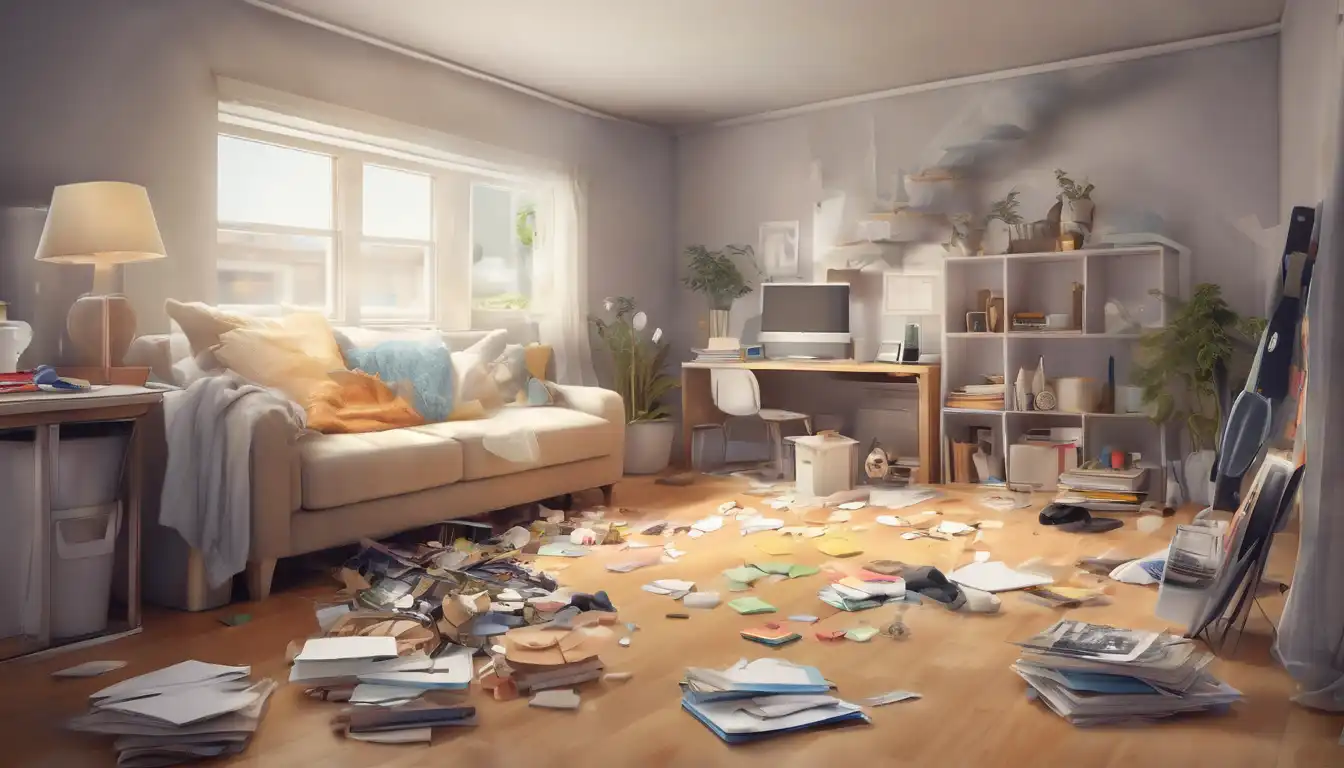Transform Your Space with These Effective Decluttering Methods
Living in a cluttered home can create unnecessary stress and make daily life more challenging than it needs to be. Many people feel overwhelmed by the thought of decluttering, but with the right approach, you can transform your living space quickly and efficiently. This comprehensive guide will walk you through proven strategies to help you reclaim your home and create a more peaceful environment.
Start with a Clear Plan and Realistic Goals
Before you begin decluttering, it's essential to establish a clear plan. Set specific, achievable goals for each session rather than trying to tackle your entire home at once. Break down the process into manageable chunks—perhaps one room per weekend or even one area per day. This approach prevents burnout and helps maintain momentum throughout your decluttering journey.
Consider creating a decluttering schedule that works with your lifestyle. If you have limited time, focus on high-impact areas first, such as entryways, kitchens, and living rooms. These spaces often accumulate clutter quickly and can make your entire home feel disorganized. Remember that consistency is key—even 15 minutes of daily decluttering can yield significant results over time.
The Four-Box Method: A Proven Decluttering System
One of the most effective decluttering techniques involves using four simple categories: keep, donate, trash, and relocate. As you go through each area, place items into one of these boxes. This method forces you to make immediate decisions about each possession, preventing the common pitfall of moving clutter from one place to another.
When using the four-box method, be honest with yourself about what you truly need and use. Ask critical questions: Have I used this item in the past year? Does it bring me joy or serve a practical purpose? Could someone else benefit from this more than I do? This systematic approach helps eliminate emotional attachment to unnecessary items and creates a more objective decluttering process.
Tackle High-Impact Areas First for Quick Wins
Begin your decluttering journey with areas that will provide the most noticeable improvements. The kitchen countertops, bathroom vanities, and entryway surfaces often accumulate daily clutter that can make your entire home feel messy. Clearing these visible spaces first creates immediate visual impact and motivates you to continue the process.
In the kitchen, focus on expired food items, duplicate utensils, and rarely used appliances. For bathrooms, discard expired medications, empty product containers, and organize your vanity essentials. Entryways benefit from having designated spots for keys, mail, and outerwear. These quick wins build confidence and demonstrate how small changes can dramatically improve your living space.
Implement Smart Storage Solutions
Effective decluttering isn't just about removing items—it's also about creating systems that prevent future clutter accumulation. Invest in practical storage solutions that work for your specific needs and space constraints. Vertical storage, drawer organizers, and multi-functional furniture can maximize your available space while keeping items accessible yet out of sight.
Consider implementing the "one in, one out" rule: for every new item you bring into your home, remove an existing item. This simple practice helps maintain your decluttering progress and prevents gradual reaccumulation of clutter. Additionally, establish designated homes for frequently used items to eliminate the temptation of leaving things out "temporarily."
Digital Decluttering: Don't Forget Your Virtual Space
In today's connected world, digital clutter can be just as overwhelming as physical clutter. Take time to organize your digital life by cleaning up your computer files, email inbox, and smartphone. Delete unnecessary files, organize documents into clearly labeled folders, and unsubscribe from email lists you no longer read.
Digital decluttering not only frees up storage space but also reduces mental clutter. A well-organized digital environment can improve productivity and reduce the stress associated with searching for important files or dealing with notification overload. Consider this an extension of your home organization efforts for a truly comprehensive decluttering experience.
Maintain Your Progress with Daily Habits
The key to long-term decluttering success lies in developing maintenance habits. Establish a daily 10-minute tidy-up routine where you return items to their designated places, deal with incoming mail immediately, and quickly scan surfaces for accumulating clutter. These small, consistent actions prevent the need for major decluttering sessions in the future.
Create systems that work with your natural habits rather than against them. If you tend to drop items near the door, place a attractive basket or shelf in that area. If paperwork piles up on your kitchen counter, set up a simple filing system nearby. By understanding and working with your tendencies, you'll find it easier to maintain your newly organized space.
Embrace the Benefits of a Decluttered Home
A well-organized home offers numerous benefits beyond just visual appeal. You'll likely experience reduced stress levels, improved productivity, and more free time since you'll spend less time searching for misplaced items. Many people also report better sleep quality and overall mental clarity after decluttering their living spaces.
Remember that decluttering is an ongoing process rather than a one-time event. Your needs and possessions will change over time, so periodic reassessment is natural and necessary. Celebrate your progress along the way, and don't be too hard on yourself if clutter occasionally accumulates—the important thing is having systems in place to address it quickly.
By implementing these strategies consistently, you'll create a home environment that supports your lifestyle rather than complicating it. The peace of mind that comes with an organized space is well worth the initial effort, and the skills you develop will serve you well in all areas of life. Start small, stay consistent, and watch as your home transforms into the sanctuary you deserve.
